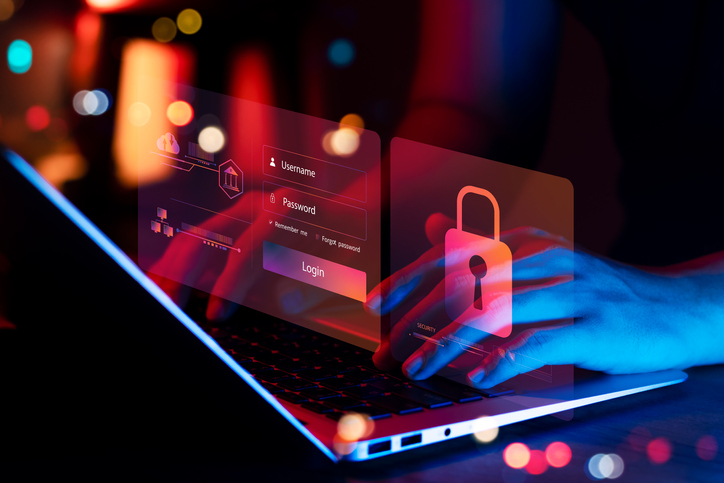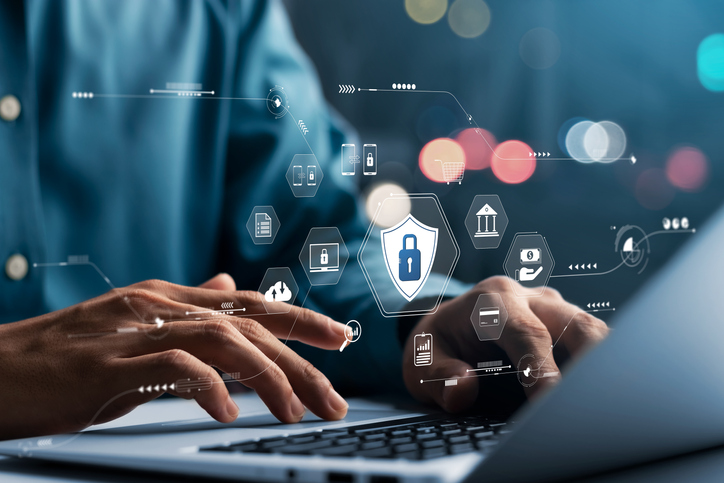As a writer sits down to their work, they’re probably not thinking about safeguarding their writing after the fact. Chances are, all that’s going through their head is a stream of writing inspiration – words, settings, facts – that’ll go into the story or article, or whatever it is they happen to be working on. However, after putting so much effort into the creation process, it’s a good idea to secure your writing against cyberattacks. These days, the majority of a writer’s work is at least done on a device, if not online.
Online writing tools
The best place to start learning about safeguarding your work is by exploring some of the most popular online word processors. While MS Word is arguably still the standard by which other word processing software tends to be compared, it can be too costly for some. Fortunately, there are free word processors to be found online, such as:
- MS Word Online
- Google Docs
- Pages for iCloud
- Quip
- Zoho Writer
- OnlyOffice Document Editor
- Writer
- Dropbox Paper
Each of these features the usual array of document editing and writing tools. Some programs may be more simplified than MS Word, but they all do basically the same thing with varying degrees of functionality. The trick is to find one that you like. The next thing an article writer will want to look at is a prompt or idea generator. Sometimes writing inspiration and starting points have to come from outside.
In addition to word processors, writers have access to a host of online and AI writer tools to help them with their craft. These tools can come in the form of prompt or idea generators, plot generators, story templates, and even apps designed to help you through your process.
Some examples of idea and plot generators include:
- ChatGPT
- Reedsy Plot Generator
- Masterpiece Generator
- RanGen
- Big Huge Thesaurus
If you’re someone who’s easily distracted, you can find writing tools designed to provide a distraction-free experience. Having all the writing and editing tools available to you can be useful, but if you don’t actually need them, they may amount to added distractions. Apps like FocusWriter, Calmly Writer, and Writebox offer pared-down user interfaces that remove all the unnecessary stuff to give you a simplified writing space.
Grammar programs offer another useful service to writers. Apps like Grammarly, ProWritingAid, and Thesaurus.com can take the stress out of writing by fixing your grammar and helping you find the right words.
Online storage and backup tools

An important part of writing online is storing your work and backing up your files. No matter whether you choose to work online or offline, you’ll eventually have to save your files. Storage that’s built into your laptop or computer is great, but there’s a finite amount of storage there. By using online storage, you potentially have access to a much bigger “space,” as well as the security measures that your chosen storage source has onboard.
Even if you choose to save your files to your own computer or other devices, it’s still worth considering backing up your files somewhere else. Some people like to email their files to themselves. Others like to upload their files to Google Drive. The potential for available storage is vast. And if you’re working with PDFs on the go, it’s also helpful to know how to edit a PDF on an iPhone, especially when quick changes are needed without a laptop nearby.
When you’re looking for an online storage option, you’ll want to consider a few specific features:
- Storage capacity
- File compatibility
- Syncing and auto-backup
- Security and data encryption
- Privacy and data ownership
- File sharing and collaboration
- Cost and value
It’s important to remember that storage options aren’t all created equal. Some will have better security, while others may offer more storage for cheaper. In your search for the perfect online storage option for your needs, consider these options:
- Google Drive
- Dropbox
- Microsoft OneDrive
- iCloud Drive
- Box
- Sync.com
- Mega
- SpiderOak
Online threats to your private data

Writing and storing your work online comes with the possibility of a cyberattack stealing your data or disrupting your work in some way. In short, cyberattacks happen because the attacker wants something, such as intellectual property, financial data, email addresses, login credentials, sensitive personal data, or client lists. It’s wise to take steps to learn about cyberattacks and how you can prevent them.
Securing your devices
The best way to help prevent a cyberattack is by securing your devices. Here are a few easy things you can do to boost the security on your devices:
- Install and update a reputable antivirus software. An effective antivirus program not only helps you fend off viruses but also protects your device against ransomware, trojan horses, denial-of-service attacks, and more. Your devices usually have a built-in antivirus program, so make sure it’s enabled through your settings menu.
- Get to know your onboard security tools. Security apps and tools are only useful if you know how to use them properly. By taking some time to learn them, you can optimize your use and boost your security.
- Use strong passwords and log out every time. Passwords that contain a mixture of letters, numbers, and symbols are less likely to be hacked. Additionally, logging out every time helps ensure that your personal login credentials are required each time.
- Use multi-factor authentication. Multi-factor authentication involves using several different ways of IDing a user, such as passwords, PINs, pattern drawing, and biometrics. By using more than one type, you increase your device security by making it harder to access.
- Disable the “save password” feature. With this feature enabled, all a hacker has to do to have access to your device, online banking, credit accounts, and more is to simply click “OK.” Disabling this feature helps keeps your information more secure.
Importance of Securing Home Security Systems:
Beyond securing your digital creations, extending your focus to the physical realm is also very important. Take a look at the security of your living space. Home security systems designed to protect your residence are not immune to hacking attempts. Securing these systems is about safeguarding your property and protecting the work that resides within it.
Preparing for scams
Part of avoiding scams and other cyberattack types lies in knowing what you’re dealing with. There’s a vast array of possible cyberattack types, but here are the five most common:
- Phishing. Phishing is a type of social engineering in which the hacker tricks people into giving out sensitive information, lures them to click on malicious links, or otherwise gives the hacker access to secure networks or systems. These can be done by email, phone calls, or text messages. Scammers can even use voice impersonation software to make their scam sound legit.
- Ransomware. Ransomware involves the use of malware to hold an organization or individual’s data for ransom. The ransomware is unknowingly downloaded and installed, whether by clicking on suspicious links or visiting infested websites, and the hacker demands a price for releasing the data acquired by these means.
- Mobile security attacks. Fake apps masquerading as genuine are rampant on the App Store. These apps come with a set of permissions that, when granted, infect the device with viruses and malware.
- Identity theft. While storing files in the cloud is more secure than storing files on your computer, it still has weaknesses. Knowing how to properly use cloud-based systems can help alleviate identity theft risks.
- Remote working. The security involved in remote working requires up-to-date routers and secure networks, among other things. By making sure your hardware is up to date and your network is secure, you can drastically reduce the element of risk involved in remote working.
Securing your devices against cyberattacks requires using a little caution. If you’re thinking about downloading an app, look at the user reviews. If you aren’t certain about a link you were sent, don’t click on it. If you get suspicious texts asking you for personal information, delete the message and block the number.
Data encryption for writers
For writers, “data” includes their work. Data breaches resulting from a cyberattack take on a different meaning, as it’s not only the loss of many hours of writing but also your ownership of the story. An enterprising hacker could potentially publish your material as their own, effectively piggybacking off your hard work.
Outside of your writing, data breaches can involve compromising or stealing your financial information, contact lists, passwords, PIN numbers, Social Security numbers, trade secrets, and other intellectual property. For this reason, cloud storage is a better option than storing or backing up your files onto hardware, as cloud storage sources offer built-in security.
Further secure your files by choosing to encrypt them. In MS Word, for example, you can encrypt your work by opening the “File” menu, clicking on “Info,” opening the “Protect Document” drop-down menu, and choosing the “Encrypt with Password” option. If you’re using a different word processor, have a look through the menu options to see what’s possible. If you can’t find the answers, look through the “Help” topics for answers.
Password protection and privacy
Your password is one of the biggest lines of defense when it comes to securing your data. There’s a good reason so many websites and apps require complicated passwords – complicated passwords are strong passwords. When you’re crafting one, consider using a combination of letters, numbers, and special characters, and avoid using common passwords that involve birthdates, addresses, and names.
Additionally, think about what you’re sharing across your social media accounts. For example, if your friends list is publicly visible, a hacker can clone your account and cause havoc simply by messaging the people on your list. If you share posts and photos on your social media, make sure your audience is set to only include your friends – otherwise, those photos and posts can be shared and stolen. Make sure your privacy settings are strict, and don’t share anything sensitive. If you suspect you or a friend have been hacked, block the offending account and report it.
WiFi and network security
Public WiFi access can be a bit of a minefield when it comes to cyber security. Since you didn’t personally secure the network – as you would with your home network – there’s no telling what kind of security risks can be found there. Fortunately, staying safe while using public WiFi is similar to the measures you would take to secure your own network.
These measures include:
- Enabling 2-factor authentication on accounts that hold personal data. This adds an extra level of security, especially if you include the use of biometrics.
- Using a VPN (virtual private network). VPNs allow you to create secure connections to public and even home networks. It’s important to note that free VPNs may compromise your data. Reputable paid services are the way to go in this case.
- Watch your Bluetooth connection. Hackers can piggyback off your Bluetooth connection and gain access to your data, so make sure to monitor your Bluetooth connectivity for unauthorized use.
- Keep your devices updated. Make sure your security programs are kept up-to-date to avoid any gaps in your security.
- Disable file-sharing and close shared files. File sharing is convenient, but it also poses a security risk.
- Don’t log into personal accounts, including social media, while on public WiFi networks. Personal accounts – and all the data they contain – are vulnerable to attack.
Protect your work online and offline
When you invest so much of yourself into something, you’ll want to protect it. For a writer, this means ensuring your writing doesn’t get compromised or stolen. There are essentially three parts to protecting your work both on and offline:
Protecting your physical copies. Whether you work out of a writing notebook or you print your manuscript and keep a hard copy of it, you’ll need to keep it safe. When you aren’t actively writing, make sure you store your hard copy in a secure place. If you’re writing in a public place, take your gear along if you need to leave your seat for any reason. Leaving your work unattended can open you up to theft.
Securing your writing devices. By using strong passwords, PINs, pattern drawing, biometrics, and multi-factor authentication, you can secure your devices against cyberattacks. You can also choose to have your screen timeout after a few minutes of being idle, meaning anyone who activates the device again has to sign in using your chosen security methods.
Learn the copyright laws in your area. Copyright laws differ from state to state. As a freelance writer, it’s a good idea to learn the copyright laws in your location. If your work is stolen, or you suspect someone of plagiarizing it, know your rights before you consider moving forward with legal action. Generally, your writing is yours as soon as you create it, but copyright infringement can be difficult and expensive for a writer to prove.
It’s a tough world out there, especially when it comes to protecting something you’ve invested so much of your time and effort into creating. Whether you’re writing online or offline, it’s important to identify possible risks to the security of your work and take steps to avoid possible cyberattacks.
Whether you work from home or in an office, fortunately, there are plenty of easy ways to keep your work secure, including storing it in a safe place, using strong passwords and multi-factor authentication, keeping your security programs up-to-date, and using due caution when dealing with suspicious links and other scams. Keeping your work secure requires diligence, so make sure you take all possible steps to ensure that your writing remains safe.





